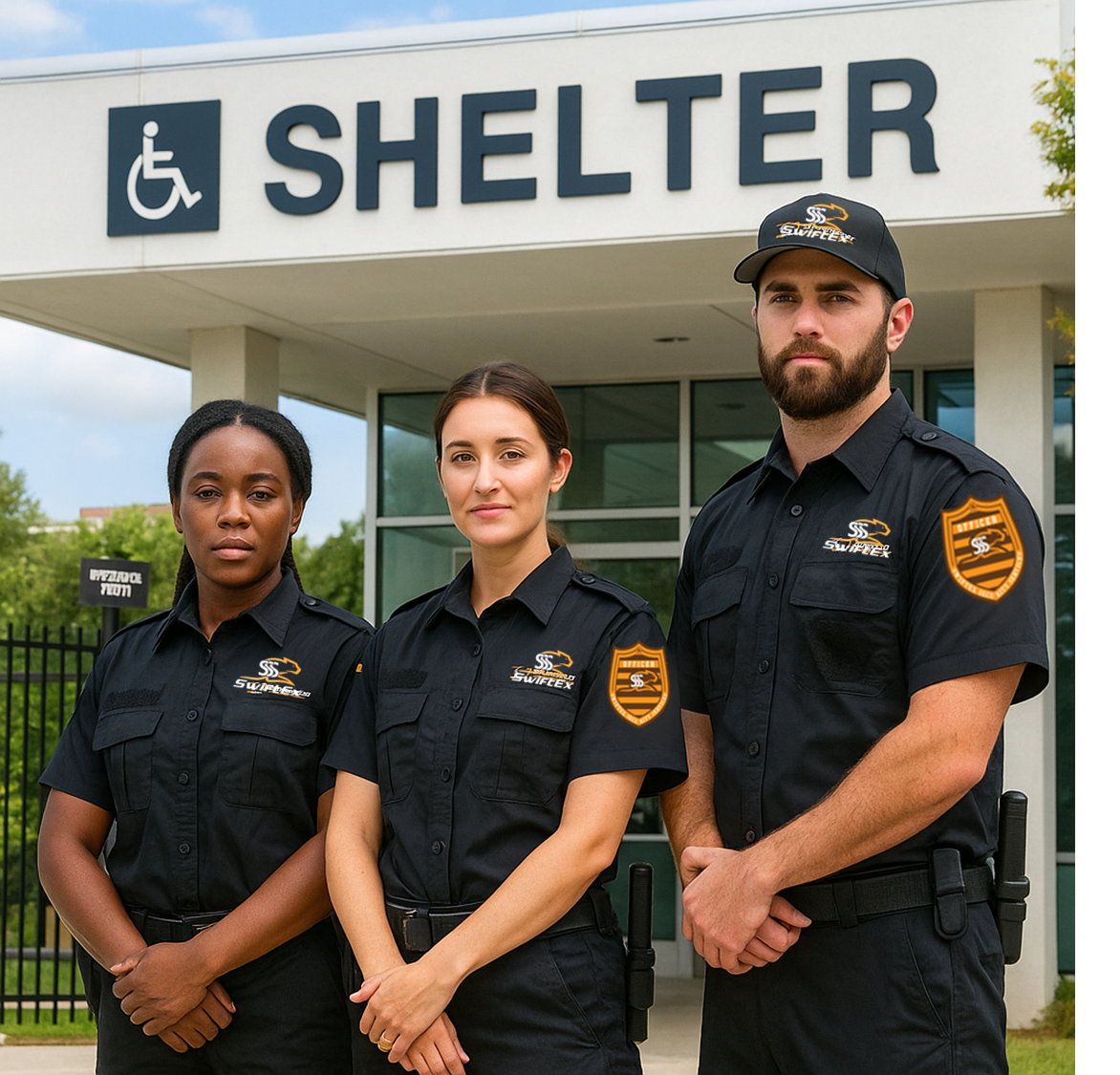
Loading...

Loading...

Shelters Security within shelters is paramount to ensure the well-being and safety of residents, staff, and visitors. In an environment where vulnerable individuals seek refuge and support, robust security measures are essential for safety and stability. Swiftex Security appreciates the importance of shelter security and safety and explores every strategy for enhancing protection within these vital community spaces.
Importance of Shelter:
Shelters serve as safe havens for those facing homelessness, domestic violence, natural disasters, or other crises. However, they can also be targets for crime, including theft, assault and vandalism. Adequate security measures are critical to prevent the threat and create an environment where individuals can rebuild their lives without fear. threat Critical Components of Shelter:
Critical Components of Shelter:
Access Control:
Implementing access control measures such as critical card-key entry systems, body screening and control of banned items, personnel security, and surveillance camera monitoring helps regulate entry and prevent unauthorized individuals from entering shelter premises.
Surveillance Systems:
Our guards are trained to monitor surveillance cameras in critical shelter areas, including entrances, common and blindspot areas, and outdoor spaces. This enables continuous monitoring and deters criminal activity.
Security Personnel:
Trained security guards provide a visible presence within the shelter, offering protection, assistance, and immediate response to security threats or emergencies.
Emergency Preparedness:
Developing and regularly practicing emergency response protocols ensures staff readiness to effectively handle crises such as fires, medical emergencies, or violent incidents.
Collaborative Partnerships:
Building partnerships with local law enforcement agencies, community organizations, and neighboring businesses fosters a collaborative approach to shelter security, enhancing support and resources for maintaining safety.
Staff Training:
Providing comprehensive training to shelter staff on security procedures, conflict resolution, and de-escalation techniques equips them with the skills and knowledge needed to address security challenges professionally and effectively.